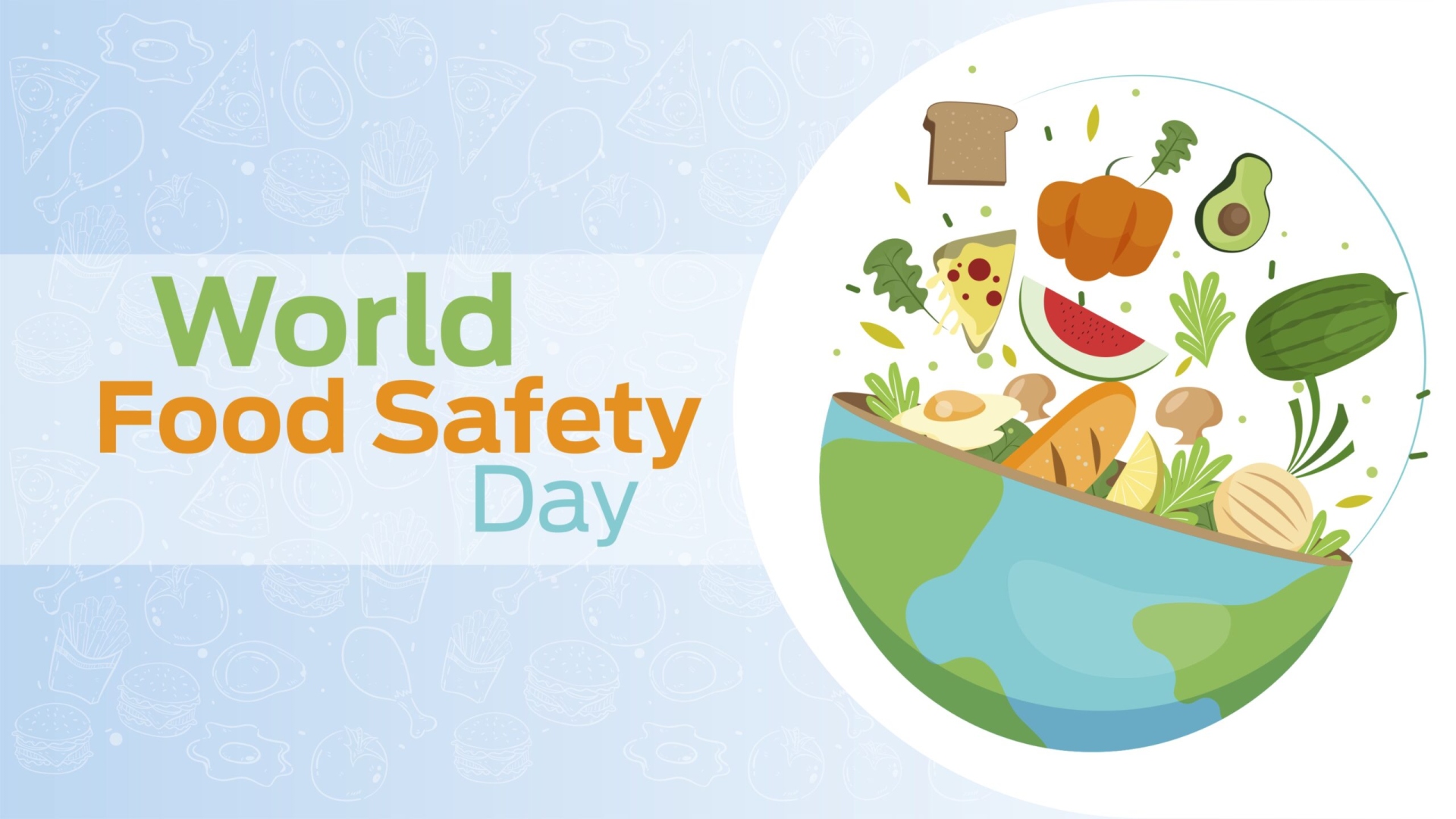Realising the importance of Food Safety, the United Nations General Assembly in 2018, decided to observe World Food Safety Day, in order to inspire, to prevent; detect and manage food borne risk

Every year since 2019, June 7 is celebrated as World Food Safety Day. Food Safety is of paramount importance. The food we consume should give us the required benefits for growth of our body and for remaining healthy.
As per the statistics available, every year billions of people suffer due to food borne diseases and lakhs of people lose their life.
Realising the importance of Food Safety, the United Nations General Assembly in 2018, decided to observe World Food Safety Day, in order to inspire, to prevent; detect and manage food borne risk; contributing to food security; human health; economic prosperity. Food safety is everyone’s responsibility. The Food Business operators, the government agencies, and the consumers.
Safety needs to be built into the food right from while it is being grown to the point it is served.
Farmers need to follow good agricultural practices, controlling the use of pesticides, usage of permitted pesticides for each type of crop, the transporter needs to follow good transportation practices, storage handlers should follow good storage practices. Purchaser needs to be vigilant while purchasing the raw material.
While cooking, storing and serving, hygienic and sanitary practices need to be followed.
The five keys for safer Food prescribed by the World Health Organisation (WHO) should be kept in mind.
As per WHO, the Five keys to safe food are:-
Keep clean
Separate raw and cooked food
Cook thoroughly
Keep food at safe temperatures
Use safe water and raw materials
All Food Business Operators (FBO) must mandatorily obtain the licence or registration Certificate from FDA, before commencing the business. They must print their licence numbers on the sales invoices.
They should follow all the sanitary and hygienic conditions stipulated under the regulations.
The sweet manufactures selling loose sweets must display the best before date on the trays in which it is stored.
Government departments should efficiently enforce the laws and regulations framed by the Government.
The Food Safety and Standards Authority of India, (FSSAI), the apex regulator has framed the Rules and Regulations, which are enforced by the Central agencies as well as by the respective Food Safety Departments of each state. In our state of Goa, the Food Safety and Standards Act (FSSA) has been implemented by the Directorate of Food and Drugs Admn, (FDA) since Aug 2011. Prior to FSSA, the department used to enforce The Prevention of Food Adulteration Act and Rules, which got repealed after the enforcement of FSSA.
Our department of FDA is thriving hard to ensure safe food to the public by way of enforcement; consumer awareness and communication; training, etc.
Since 2019, FSSAI has started the scheme of evaluating the performance of each State and Union Territory for the Food Safety Index.
This scheme through its ‘Food Safety Index’ gives healthy competition amongst the States. Goa has been ranked the Best Performing State for the third consecutive year. These rankings are announced on the World Food Safety Day after thorough evaluation on five different parameters such as: Human Resource and Institutional data, compliance, Consumer Grievances, Food Testing Infrastructure and Surveillance, and Training and Capacity building.
The Goa FDA has recently recruited 18 new Food Safety Officers to comply with the requirement of shortfall of Human Resource.
The statutory duties of Food Safety Inspectors includes inspection of premises for grant of licence or registration, drawing of random samples of food articles, especially risk based items for analysis, filing adjudication cases or court cases in case the sample of food fails to comply with the requirements. Investigating the complaints received regarding the quality of Food, or unhygienic conditions. Conducting surveillance drives especially during the festival seasons, to check for any malpractices. Early morning, late evening, during weekends, surprise inspections are carried out to detect any illegal activity.
The FDA has its own testing laboratory, which is NABL Accredited. The FDA is also equipped with Food Safety on Wheels (FSW) that is (Mobile Food Testing Van), which moves from place to place, creating awareness about food safety, training and food testing. Food is tested using Rapid testing kits. Public can also get their samples tested at nominal fees on FSW.
Human resource at Food Lab is strengthened by recruiting additional analysts. Safety at home is equally important. Consumers need to be vigilant.
While purchasing food, one should look for freshness, if packaged food, then should read the label properly, look for the expiry date.
While eating out, eat at clean and hygienic premises, look for Food Safety Display Boards.
Read the books published by FSSAI, available on the website, www.fssai.gov.in.
FSSAI, in addition to being a regulator, has turned facilitator, and is working hard to bring in the culture of Eating Right, through its flagship programme of Eat Right India.
Main themes of Eat Right India initiative are:
Eat Safe
Eat Healthy
Eat Sustainable
The Eat Right initiative is carried out by the Goa FDA to a great extent. North Goa District of Goa, is awarded as amongst the top 75 districts of India in Eat Right Initiatives.
Tips for healthy and safe diet
Reduce the intake of salt, sugar and fat.
Don’t heat the frying oil more than three times.
Don’t use newspaper to wrap food, especially oily food, as the toxic materials from the printing ink leaches into the food.
Use portable water to prepare ice.
Consume fortified rice, wheat flour, milk, oil and salt.
Eat a balanced diet.